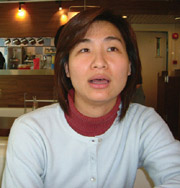No Diet Day
Dieting doesn't add up to beauty and health
By Maggie Lin
6 May marks International No Diet Day. The annual celebration advocates body acceptance and diversity. Since its establishment in 1992, it has been celebrated internationally.
Mary Evans Young, director of the British anti-diet campaign, Diet Breakers, started the little-known holiday.
She is a recovered anorexic and the author of a best-selling book in Britain titled Diet Breaking: Having It All Without Having To Diet.
Listed on a website dedicated to No Diet Day are the top 10 reasons why people should give up diets.
The No. 1 reason is this: “Learning to love and accept yourself just as you are will give you self-confidence, better health, and a sense of well-being that will last a lifetime.”
It encourages people to drop the strict eating regimen and tries to spread the message that beauty and health are attainable at all weights. It also holds that “sizism” and fat phobia must end.
In Hong Kong, the day is little known. Gutsy Women, a local organization for women, was set up in 1997 by a group of freshly graduated female university students.
It The organization deals with gender issues such as dieting, sexual assault and other sexual matters.
Organizers of Gutsy Women have demonstrated outside the venue of the 2001 Dieting and Fitness Products Exhibition wearing tank tops and shorts.
They tried to convince other women that you should accept yourself in spite of your body shape.
Lam Ying Hing, one of the organizers for Gutsy Women explained, “Fat is portrayed as ugly in the media. But that is not true and the discrimination should stop.”
Prof. Freedom Leung is a clinical psychologist and an associate professor in the Department of Psychology at The Chinese University of Hong Kong.
He said, “It is uncertain whether these kind of anti-diet campaigns can change people’s attitudes towards body shape.”
According to Prof. Leung, local women always want to be slimmer.
Their ideal woman’s body is relatively tall, slim, and curvaceous.
“Diets are a big lie. The weight of a person is genetically determined, with a range around 10 to 20 pounds.
“When one goes on a diet and her weight drops below the set range, the change is detected by the hypothalamus in the brain and the auto-binging mechanism will be triggered,” he said.
Binging is when a person consumes a large amount of forbidden food within a short period of time.
Forbidden food is often fattening and is largely restricted. After binging, the person is likely to feel guilty for what she has done.
Said Prof. Leung: “This explains why up to 90 percent of patients with anorexia nervosa eventually develop into bulimic nervosa.”
Despite being thinner, most girls want to weigh less.
According to Disordered Eating Attitudes and Behavior Among Adolescent Girls in Hong Kong, published in 2001, 70 percent of girls polled want to shed weight.
The book pointed out that improved nutrition and changes in eating habits have caused an increase in height and weight in the past three decades.
This might have intensified dissatisfaction with body shape and obsession with slenderness among many local girls.
Said Miss Lam: “There is overwhelming pressure from the media.
“This has created an atmosphere where going on a diet is what every woman should do.
“And it has escalated to such an intensity where people feel ashamed for being fat. “Fat women have been stigmatized as lazy, ugly, and without self-control.
“In view of the bad economy in recent years, some companies have increased their focus on women.
“They shower millions of dollars on promotion campaigns for slimming treatments and products targeting women.”
These might partly account for the increase in the prevalence of eating disorder cases in recent years.
Prof. Leung said that eating disorders are not about eating or weight control. It is about their sense of self.
“Eating disorder patients try to lose a deep sense of self-inadequacy, or gain a sense of worth or significance.
“They have the right intention, but they are using the wrong means,” he said.
He added that dieting only harms their bodies and simply does not help the patients feel better about themselves.
Miss Lam urged society to start changing this weight-obsessed atmosphere by making fewer comments on other peoples’ bodies.
In addition, she said that women can spend more time appreciating their own bodies. They can also discover their strengths through a better understanding of themselves.

Lam Ying Hing. (Maggie Lin)